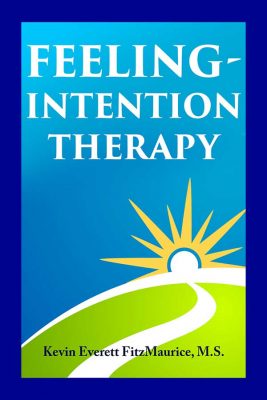Professions in the Mental-Health Field
- Garden will teach you an easy and effective Cognitive Behavioral Therapy (CBT & REBT) system.
What professions exist in the mental health field? Which professions are trained to do what in the mental health field? Choose the right ones.
- Read for the best self-help system based on CBT.
- Most advanced understanding of feelings combined with efficient and effective therapy.
Professions: Note on the Descriptions
- This is a brief description of the different professionals involved in the mental health field.
- It is not an attempt to explain every variation. It is only an attempt to provide a general view of the main professions involved in mental health.
- There are frequent exceptions, changes occurring over time, and some notable exceptions such as Albert Ellis, Aaron Beck, and Maxie Maultsby Jr.
Professions: PSYCHIATRIST
EDUCATION: Primarily educated in medicine. Medical degree (M.D. or D.O.) or ten or more years of college.
BIAS: Prejudice is a medical or disease model. A proponent of the unproven chemical imbalance theory of mental disorders because it is self-serving: they make their living writing prescriptions—strong connections with the drug industry.
COUNSELING: Little formal education in counseling. If they have much training, they seek it out in addition to their formal schooling.
FUNCTION: The management of psychotropics. That is, a psychiatrist is the better doctor (specialist) to see if you need mind drugs.
- The Chemical Imbalance Theory is debunked here: external link to a journal, see #7.
- Symptoms Are Not Causes
Professions: PSYCHOLOGIST
EDUCATION: Primarily educated in testing and evaluation. Doctoral degree (Ph.D. or Psy.D.) or 8-10 years of college.
BIAS: The medical or disease model is still prevalent. Prejudice is that comprehensive testing is needed. They are a proponent of psychological testing because they make their living and write evaluations. However, most psychological testing has little practical use, is rarely read or used, and provides little direction for treatment interventions.
COUNSELING: Little formal education in counseling. If they have much training, they seek it out in addition to their formal schooling.
FUNCTION: Psychological evaluations. Provide more useful evaluations than do psychiatrists.
Professions: COUNSELOR
EDUCATION: Primarily educated in counseling. Master’s Degree (M.S. or M.A.) or six years of college.
BIAS: Developmental model or learning theory is favored. The counselor believes that problems are learned and can be unlearned. There are two basic types: (1) the paid friend or so-called relationship counselors who favor whining, blaming, and damning; (2) the educator or those who favor providing structured and specific psychological reeducation such as in REBT.
COUNSELING: Formal education may be entirely in counseling if obtaining an M.S. degree. Licensure and certification rules require continuing education in counseling. Often, they are highly trained in many counseling modalities and theories.
FUNCTION: The best trained and most experienced in counseling. Seek those with national certifications and experience. Should supervise psychiatrists, psychologists, social workers, nurses, counselors, and anyone who provides counseling services.
Professions: SOCIAL WORKER
EDUCATION: Primarily educated in the political aspects of social systems. Master’s Degree (M.S.W.) or six years of college.
BIAS: Political solutions are the answer. They tend to view clients as victims of society, so they are depowering and often part of the problem: they like to play rescuers in the drama game.
COUNSELING: Not as much formal training as counselors as too much time wasted on political issues. Fortunately, they often seek additional training in counseling beyond their formal education.
FUNCTION: Best working in agency counseling, for example, child protective services or managing a community-based program.
Professions: PSYCHIATRIC NURSE
EDUCATION: Primarily educated in medical support. Registered Nurse (R.N.) or two or more years of college.
BIAS: Medical or disease model: “doctor knows best” and “drugs are the answer.”
COUNSELING: Little training. Mainly on-the-job training from others who received on-the-job training. They tend to be authoritarian and babysitters for psychiatrists. This is beginning to change for the better. For instance, some hospitals promote emotional reeducation programs during inpatient stays.
FUNCTION: Monitor patients for the psychiatrist for the patient’s medication compliance.
- Most advanced understanding of feelings combined with efficient and effective therapy.
Professions: MULTIPLE-CHOICE QUIZ
- Choose the best answer and circle only one:
- A, B, or C.
In the construction field, who should supervise an apprentice carpenter?
- Someone whose main education and experience is in:
A. wiring (a licensed electrician)
B. plumbing (a licensed plumber)
C. carpentry (a journeyman carpenter)
In the mental health field, who should supervise a new counselor?
- Someone whose main education and experience is in:
A. psychotropics (psychiatrist)
B. psychometrics (psychologist)
C. psychotherapy (counselor)
Professions
3D: Daily Dose: 2020
#Feel #Better: 2020-02-06
- Feeling better helps to motivate the counseling client to continue practicing new emotional and coping skills.
- Getting better helps to motivate the counseling client to reinforce and commit to their new emotional and coping skills.
- They are getting better results from counseling client, making habits of their new emotional and coping skills.
- Rational Emotive Behavior Therapy (REBT) is the premier therapy for helping clients learn to make themselves feel, get, and stay better.
- Medications and paid-friend therapies are palliatives, not remedies, and certainly do not teach clients to be their counselors and therapists.
- Most advanced understanding of feelings combined with efficient and effective therapy.
Professions: Quotations Various Sources
Listed Alphabetically
“A fool is only a fool because he won’t see he is a fool.” —Kevin Everett FitzMaurice
“A fool remains a fool because he won’t see he is a fool.” —Kevin Everett FitzMaurice
“A man of genius makes no mistakes. His errors are volitional and are the portals of discovery.” —James Joyce
“But if ye be without chastisement, whereof all are partakers, then are ye bastards, and not sons.” —Hebrews 12:8
“By honestly acknowledging your past errors, but never damning yourself for them, you can learn to use your past for your own future benefit.” —Albert Ellis and Robert A. Harper, A Guide to Rational Living, Third Edition, p. 194
“Correction is grievous unto him that forsaketh the way: and he that hateth reproof shall die.” —Proverbs 15:5
“Failure doesn’t have anything to do with your intrinsic value as a person.” —Albert Ellis and Robert A. Harper, A Guide to Rational Living, Third Edition, p. 206
“For whom the Lord loveth he chasteneth, and scourgeth every son whom he receiveth.” —Hebrews 12:6
“If we eliminated all errors, we would also eliminate much discovery, art, insight, learning, and creativity that results from facing errors.” —Kevin Everett FitzMaurice
“If ye endure chastening, God dealeth with you as with sons; for what son is he whom the father chasteneth not?” —Hebrews 12:7
“My son, despise not the chastening of the LORD; neither be weary of his correction:” —Proverbs 3:11
“The great man is he who does not lose his child-heart.” —Mencius
“The greatest explorer on this earth never takes voyages as long as those of the man who descends to the depth of his heart.” —Julien Green
“The trouble with most of us is that we would rather be ruined by praise than saved by criticism.” —Norman Vincent Peale
“When receiving correction, the wise seeks to learn, and the fool seeks to justify with excuses.” —Kevin Everett FitzMaurice
Professions: Quotations from Scripture on Counseling
Listed Biblically
“A wise man will hear, and will increase learning; and a man of understanding shall attain unto wise counsels:” —Proverbs 1:5
“Where no counsel is, the people fall: but in the multitude of counselors there is safety.” —Proverbs 11:14
“The way of a fool is right in his own eyes: but he that hearkeneth unto counsel is wise.” —Proverbs 12:15
“Deceit is in the heart of them that imagine evil: but to the counselors of peace is joy.” —Proverbs 12:20
“Without counsel purposes are disappointed: but in the multitude of counselors they are established.” —Proverbs 15:22
“Hear counsel, and receive instruction, that thou mayest be wise in thy latter end.” —Proverbs 19:20
“Every purpose is established by counsel: and with good advice make war.” —Proverbs 20:18
“Take counsel, execute judgment; make thy shadow as the night in the midst of the noonday; hide the outcasts; bewray not him that wandereth.” —Isaiah 16:3
“Extol not thyself in the counsel of thine own heart; that thy soul be not torn in pieces as a bull [straying alone.]” —Ecclesiasticus 6:2
“As timber girt and bound together in a building cannot be loosed with shaking: so the heart that is stablished by advised counsel shall fear at no time.” —Ecclesiasticus 22:16
“Give not over thy mind to heaviness, and afflict not thyself in thine own counsel.” —Ecclesiasticus 30:21
“A man of counsel will be considerate; but a strange and proud man is not daunted with fear, even when of himself he hath done without counsel.” —Ecclesiasticus 32:18
“And let the counsel of thine own heart stand: for there is no man more faithful unto thee than it.” —Ecclesiasticus 37:13
“Let reason go before every enterprize, and counsel before every action.” —Ecclesiasticus 38:33
“Gold and silver make the foot stand sure: but counsel is esteemed above them both.” —Ecclesiasticus 40:25
- Most advanced understanding of feelings combined with efficient and effective therapy.
Professions: Related Pages of Free Information
- CBT, CT, & REBT Cognitive Psychotherapies: List Pages
- Coping Skills: Free Help
- Counseling Issues: Free Help
- Ego & Self-Esteem Fast-Facts
- Emotional Responsibility: List Pages
- Exercises & Techniques: List Pages
- Feeling & Coping: Fast-Facts
- REBT (Rational Emotive Behavior Therapy): List Pages
- Self-Esteem Issues: List Pages
- Unconditional Self-Esteem (USE): Defined
- Read and discover the best diagrams and maps of how people play games with your mind and heart.
- Most advanced understanding of feelings combined with efficient and effective therapy.
Professions: 6 Groups of Topics Menu
- 1. Pages by Topic
- 2. Fast-Facts by Topic
- 3. Quotations by Topic
- 4. Poems by Topic
- 5. Scripture by Topic
- 6. Websites by Topic
- Read and discover how CBT, REBT, & Stoicism evolved into one system: STPHFR.
- Read and discover the world’s best breathing exercise for centering and peace of mind.
- Most advanced understanding of feelings combined with efficient and effective therapy.
Professions: 10 Skills & Topics Menu
- 1. Coping Skills & Topics
- 2. Problem-Solving Skills & Topics
- 3. Communication Skills & Topics
- 4. Recovery Skills & Topics
- 5. Anger Skills & Topics
- 6. Blame Skills & Topics
- 7. Thinking Skills & Topics
- 8. Responsibility Skills & Topics
- 9. Counseling Skills & Topics
- 10. Praying Skills & Topics
- Read and discover how CBT, REBT, & Stoicism evolved into one system: STPHFR.
- Read and discover the world’s best breathing exercise for centering and peace of mind.
- Most advanced understanding of feelings combined with efficient and effective therapy.





